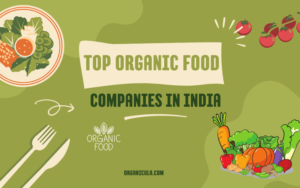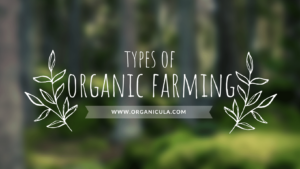What is organic Farming?
Organic Farming is an endurable agricultural technique that concentrates on producing food eco-friendly without using synthetic fertilizers, pesticides, and other harmful chemicals. Organic Farming uses natural materials such as cow dung compost, vermicompost, and cover crops to enhance soil health and boost plant growth.
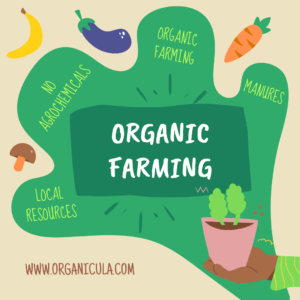
Organic Farming in India
- Organic Farming has a rich history in India, dating back to ancient times when conventional farming methods were used. Organic farming methods were frequently used in rural areas where farmers had little or no access to chemical infusions.
- The current organic farming movement in India began in the 1980s when the first certified organic farm was established in the country. Since then, organic Farming has increased steadily, with increasing domestic and international demand for organic food.
What are the advantages of Organic Farming?
Enhanced Soil Health
:
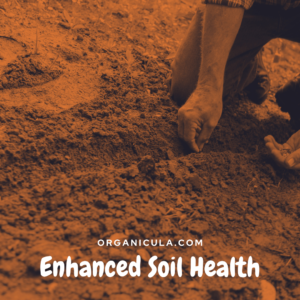
Organic farming methods promote soil health by using natural infusions, such as compost and cover crops, to enhance soil format and fertility. It leads to rising soil biodiversity and improved soil water-holding capability.
Lowered Risk of Water Pollution:

Using artificial fertilizers and pesticides in traditional Farming can pollute water sources, which can have severe environmental and health consequences. On the other hand, Organic Farming reduces the risk of water pollution, as it depends on natural inputs and lessens the use of chemicals.
Healthier Crops and Livestock:
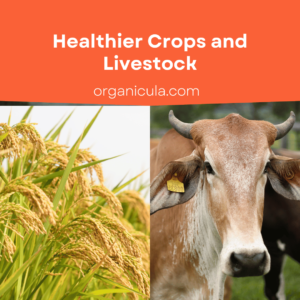
Organic crops and livestock are free from toxic chemicals and are produced in a more natural environment, resulting in more beneficial and healthy products.
Increased Biodiversity:
Organic Farming enables biodiversity by lowering harmful chemicals, which can negatively affect wildlife and other non-target species. It also promotes the use of cover crops and other naturalistic intakes, which can nourish a habitat for various species.
Improved Farmer Livelihoods:
Organic Farming can enhance farmers’ livelihoods by delivering a bonus price for their yields, enhancing soil health and lowering input costs. Also, organic farmers often have more steady markets, as there is a growing need for organic food domestically and internationally.
Organic Farming in India Today:
- With the rapid growth of the organic food market, India is one of the world’s largest producers. India has over 1 million certified organic farms, with over 6 million hectares of land under organic cultivation.
- The government of India has launched several programs to subsidise the growth of the organic sector, including subsidies, training, and market development endeavours. These programs aim to boost the adoption of organic farming techniques and enhance the sector’s competitiveness in global markets.
What are the Challenges in Organic Farming?
Lack of Awareness Among Farmers:
Despite the growing need for organic food, many farmers in India still need to understand the advantages of organic farming. It can restrict the sector’s growth and make it hard for farmers to access knowledge and help.
Little Access to Markets and Information:
Organic farmers in India often require help accessing markets and knowledge, restricting their capability to sell their products and enhance their farming practices. It is especially true in rural areas, where farmers may need more access to information and markets.
High Costs of Certification:
Organic certification can be costly and time-consuming, a barricade for farmers who want to change to organic farming. Also, certification costs can be a barrier for small-scale farmers, who may require more aid to support certification.
Difficulty in Accessing Financing:
Organic farming needs essential investment, both in terms of information and infrastructure. It can be the most significant barrier for farmers who want to shift to organic farming.
How to Overcome Challenges in Organic Farming in India:
Awareness and Education Campaigns:
Government and private institutions can establish awareness campaigns to enlighten farmers about the advantages of organic farming and support them in overcoming the shortage of communication and learning.
Market Development:
The government and private institutions can work to create markets for organic products, making it more comfortable for farmers to access markets and sell their products at reasonable prices.
Subsidies and Financial Support:
The government can deliver subsidies and other economic aid to help farmers shift to organic farming, making it more reasonable and convenient. It could contain support for certification, inputs, and infrastructure.
Technical Assistance:
Technical help and training programs can be set to help farmers adopt organic farming techniques and overpower the technological challenges associated with organic farming.
Public-Private Partnerships:
Public-private collaborations can be designated to help the development of the organic sector in India. For example, private companies can perform with the government to equip farmers with financing, technical assistance, and market development support.
Research and Development:
Acquisition in analysis and growth can improve the competitiveness of the organic sector in India and help the sector’s growth.
Promoting Exports:
The government can boost exports of organic products from India, which can help grow demand for organic products and help the organic sector’s growth.
By handling these challenges, the organic farming sector in India can resume growing and provide miracles to farmers, customers, and the atmosphere.

